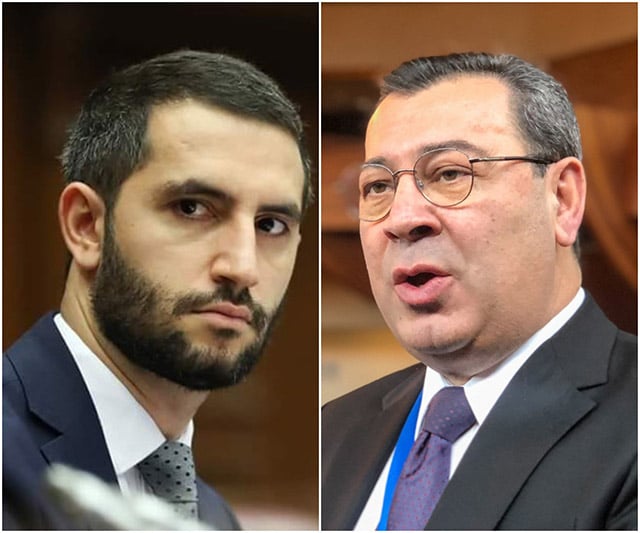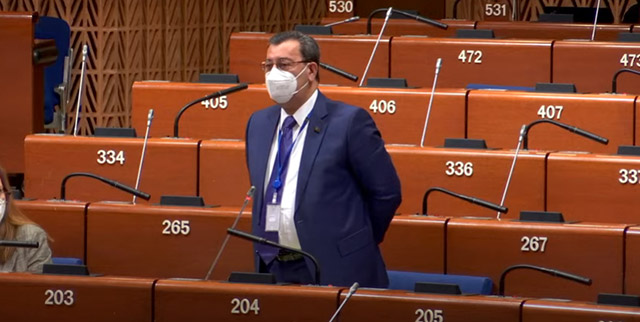The draft resolution entitled “Activities of Democratic Institutions in Armenia” was discussed during the plenary session of the PACE winter session. The report was prepared by MPs from Finland and Sweden Kimmo Kiljunen and Boriana Aberg.
The report praises Armenia, noting that the country has made significant democratic progress. It is mentioned in the resolution, “The Monitoring Committee welcomes the fact that Armenia made significant progress in its democratic development after the change of political leadership in Armenia in 2018, successfully overcoming the serious political crisis caused by the Nagorno-Karabakh conflict, which was overcome by the June 2021 parliamentary elections.”
After the presentation of the report on January 27, the delegates made speeches on this topic. Most of them stated about the democratic development of the Republic of Armenia, the will of the Armenian authorities to share, follow, and achieve European values. The leaders of all PACE political groups spoke in favor of the resolution and about the democratic development of the Republic of Armenia. The leader of the Socialist group, Stefan Schennach, announced, “Democracy is moving forward in Armenia. In 2018, there was a change in the country’s political leadership, the new government had a problem with the Karabakh conflict from the very beginning of its rule. Following the Russian-brokered trilateral agreement signed in November, large-scale protests erupted in Yerevan demanding the removal of the government. So it was a big surprise that the Armenian government remained the same after all that. The ruling party won the election again.”
The head of the Armenian delegation to the PACE Ruben Rubinyan, thanking the European partners for the assessments, stated, “The main danger that threatens the democracy of the Republic of Armenia does not come from the inside, but from outside. I hope that Armenia will not walk alone on the democratic path it chose.”
Read also
The Azeri delegates were seriously concerned about the report submitted to the PACE vote. In particular, the head of the Azerbaijani delegation to PACE, Samad Seidov, could not even hide his anxiety and tension. He introduced a number of changes to the resolution, but all were rejected. For example, he suggested that the report not use the name Nagorno-Karabakh, but, as he claimed, use the phrase used by the Monitoring Committee in another report and fix the conflict between Armenia and Azerbaijan. The head of the Armenian delegation to PACE, Ruben Rubinyan, spoke against this.
He mentioned, “Samad Seidov is wrong. For years, the conflict has been called the Nagorno-Karabakh conflict. I understand that Samad Seidov wants to erase that name, the region, and the people living there, but he can not do that.”
The Seidov-Rubinyan argument lasted a long time. Seidov said that Nagorno Karabakh is part of Azerbaijan, and there is no Nagorno Karabakh conflict; it is over. In response, Ruben Rubinyan stated, “Literally two hours ago, units of the Azerbaijani armed forces fired at peaceful settlements in Nagorno-Karabakh. What Samad Seidov says is not true.”
Seeing that no change he proposed was accepted by the Assembly, Samad Seidov expressed despair. “Everything is going in the right direction, long-term peace cooperation is underway, the two countries are communicating, so we want to bring that mood here as well. How can we not allow these changes and reservations to be made in this document?”
Ruben Rubinyan responded, “If, as you say, everything is going in the right direction, then all Armenian prisoners of war should have returned to Armenia and civilians without weapons should not have been killed in Nagorno Karabakh in recent months. We should not have conducted this disgraceful discussion. So, everything is not going in the right direction.” After an hour and a half of deliberations, the Assembly passed the resolution by a vote of 50 to 32, with 16 abstentions.
Tatev HARUTYUNYAN
























































